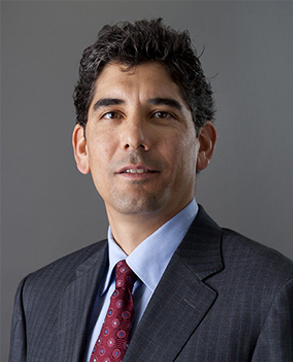Mesothelioma
What is Malignant Mesothelioma?
Malignant mesothelioma is a cancer of mesothelium. The mesothelium surrounds the lung and abdomen, allowing organs to slide past each other (like when the lungs expand and contact or the digestive system moves food through the intestines).
Two thirds of mesothelioma cases diagnosed are pleural mesothelioma, or a cancer of the lining of the lungs. Most of the remaining cases are peritoneal mesothelioma, or a cancer of the lining of the abdomen. Mesothelioma can affect, however, the lining of the heart (or pericardium) or the lining of the reproductive organs.
More on Mesothelioma
Since it often takes between 20-30 years from the initial exposure for mesothelioma to develop, people with exposure to asbestos in the 1950s , 60s, and 70s are now being diagnosed. Because of mesothelioma’s aggressive nature, most patients with this rare cancer live only a short time; however, a wide variety of new treatments and procedures are constantly being researched and tested, and many of these have successfully extended—and improved—the lives of mesothelioma patients.
For more information on mesothelioma and the latest news on new mesothelioma treatments, please visit the Mesothelioma Center.
What is a Mesothelioma Attorney?
In many industries, specialists focus on certain areas of practice. Perhaps filling a common need, or focusing on a unique situation. Plaintiffs’ attorneys who specialize in mesothelioma litigation—and the other asbestos diseases—focus on the needs of those who have suffered asbestos exposure. Asbestos lawsuits fall under an area of law sometimes referred to as toxic torts (torts being injuries).
For over three decades, GPW has specialized in the practice of asbestos law, representing many individuals throughout the US who have been diagnosed with mesothelioma, lung cancer, or other asbestos-related diseases. As a result of this focus, our mesothelioma lawyers have the knowledge and experience to fight for the best possible asbestos compensation.
Just as you would seek out the opinion of an oncologist to treat cancer, when you are seeking a lawyer for your mesothelioma lawsuit, it is important you find an attorney experienced in asbestos litigation. Feel free to contact us directly for more information.
Malignant Mesothelioma – Treatment Briefs
Because our mesothelioma attorneys represented many individuals that have been diagnosed with mesothelioma, as well as other asbestos-related cancers, we have become familiar with many of the treatments and protocols that victims may be offered. The purpose of the following information and links is to educate our clients and visitors to our web site about the various treatments that we know about. This information has been compiled for informational purposes only and does not constitute medical advice. Visitors with medical questions should promptly consult with a physician licensed in their state of residence. For more information on mesothelioma and the latest news on new mesothelioma treatments, please visit the Mesothelioma Center.
Surgery
Surgery is sometimes offered to victims of mesothelioma and is often a consideration for victims of lung cancer and other asbestos-related cancers. With respect to mesothelioma and lung cancer, there are at least three major operations that many of our clients have undergone: lobectomy, pneumonectomy and extrapleural pneumonectomy. The goal of all three operations is to surgically resect (cut out) the cancerous tissues. A lobectomy is the surgical removal of one or more lobes of the lung. A pneumonectomy entails the removal of the entire lung. An extrapleural pneumonectomy involves the removal of an entire lung, as well as portions of the pleura and diaphragm. There are eligibility criteria for each operation which you need to discuss with your physician. Some of the criteria considered by physicians in determining eligibility for these surgeries include pulmonary function reserve, cell type of the cancer, staging (progression) of the cancer and other treatment received to date. Results of surgery, offered alone or in conjunction with other therapy, varies widely.
Radiation
The goal of radiation therapy is to kill cancerous cells and shrink tumors. Radiation therapy is offered in two forms: external radiation therapy and internal radiation therapy. External radiation therapy, which is the most common form of radiation therapy, involves precise application of radiation to the specific cancerous organs and surrounding tissues from an external machine. Internal radiation therapy entails the insertion of radioactive isotopes directly in the body through a surgical procedure. Radiation is sometimes offered to Mesothelioma patients in an attempt to control pain. This type of radiation therapy is known as palliative radiation.
Chemotherapy
Chemotherapy, in contrast to radiation therapy, is a systemic treatment in that the chemotherapy drugs circulate throughout the entire body with the goal of killing cancer cells. Chemotherapy is sometimes prescribed by injection or by oral administration. Chemotherapy comes in a wide array of forms and treatment protocols, some of which are still considered experimental or radical. Similar to internal radiation therapy, described above, chemotherapy is sometimes implanted directly in the chest and/or pleura. Chemotherapy is sometimes prescribed in conjunction with radiation therapy or offered alone.
Alternative Treatments for Mesothelioma
- Onconase
- Lovastatin
- Gene Therapy
- Photodynamic Therapy
If you are suffering from mesothelioma, please ask your physician if you qualify for any of these treatments.
New Treatments
A mesothelioma diagnosis is a serious one, but it is not one without hope. There are a variety of treatments available, and a number of ongoing clinical trials.
Clinical trials are offered to those who qualify as alternative treatments and typically administered when traditional treatments are not having the desired effect. Testing the safety and efficacy of the new drug, clinical trials are divided into three phases:
- Phase I Trial
- With only a small group (less than 100) of participants, Phase I trials focus on the safety of the new drug by documenting side effects (severity, long-term, short term, etc) and determining dosage.
- Phase II
- These trials not only focus more on the safety, but also the overall efficacy of the new treatment. Testing involves a larger sample of people (up to 300) along with a placebo to more accurately define common and uncommon side effects.
- Phase III
- The last phase before FDA approval, Phase III clinical trials sample up to 3,000 individuals and test for overall effectiveness and side effects in comparison to already approved treatments. Risks and benefits are determined.
Eligibility
Not everyone is eligible for a clinical trial. These established parameters are usually based upon age, overall health, disease progression and duration, and prior treatment received. Visit our clinical trials page to learn about the most recent trails for those suffering from lung cancer and mesothelioma.
Want to learn more? Click here and contact us to receive your Free Mesothelioma Book.












